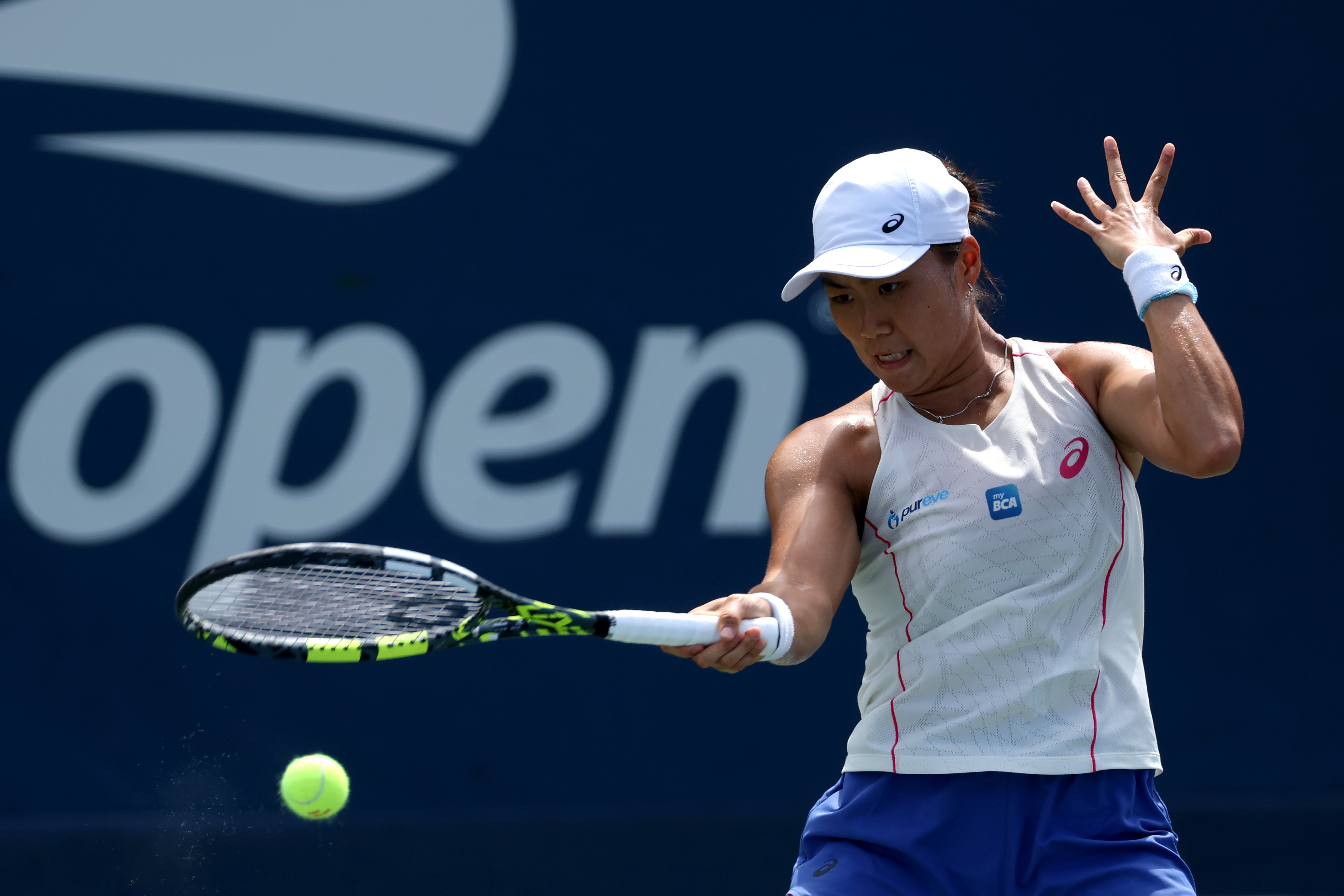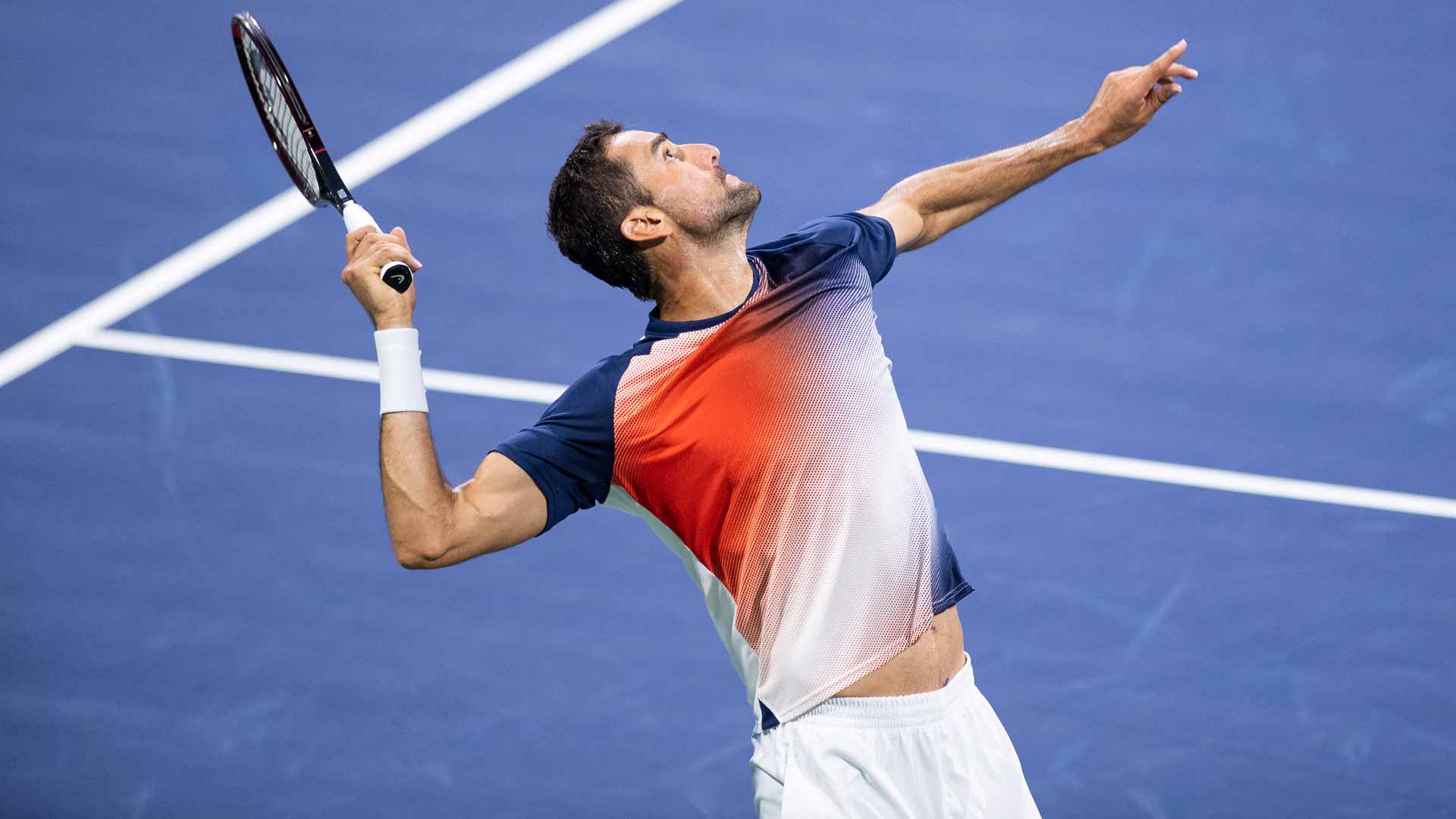A new world of tennis is emerging in New York

NEW YORK -- Born in Jakarta, Indonesia, Janice Tjen started playing tennis when her friend Priska Madelyn Nugroho invited her on court.“My parents just like, ‘Yeah, just go play the sport, just having exercise,’” Tjen told reporters at the US Open. “So I’m not going to be in my room just doing nothing.”Fast forward to last Friday, when Tjen did something special, throwing down a 6-1, 6-2 win over No. 3 qualifying seed Aoi Ito to secure a spot in the main draw. She became the first Indonesian player to compete in a major since Angelique Widjaja at the 2004 US Open. And then she upset No. 24 seed Veronika Kudermetova in a three-set, first-round match, equaling Widjaja’s effort at the 2023 Wimbledon championships.The Unisphere, symbolizing the vast world we live in, is an iconic stainless steel sculpture dominating the entrance at the Billie Jean King National Tennis Center. But as we’ve seen, the world today is shrinking at the elite levels of tennis. Once upon a time, the United States, Australia and Great Britain dominated the game.Now, we’re seeing some distinctly non-tennis nations creeping into the mix -- and their players are bringing a new, non-traditional flavor to the game. Beyond Tjen, consider the events of the past three days at this US Open:Alexandra Eala defeated No. 14 seed Clara Tauson 6-3, 2-6, 7-6 (11), becoming the first woman from the Philippines to win a main-draw match at a Grand Slam.Victoria Jimenez Kasintseva, a former junior No. 1, was the first Andorran ever in a Grand Slam main draw before falling to Maya Joint on Tuesday.Renata Zarazua stunned No. 6 seed and reigning Australian Open champion Madison Keys, becoming the first Mexican woman to beat a Top 10 seed in three decades.“I think definitely tennis is becoming a bit more popular, more global,” Zarazua said after her shocking win over Keys. “I would say a lot of people are watching a bit more than before maybe.”Safe to say, they’ll be watching Wednesday when Tjen meets Emma Raducanu in a high-profile, second-round match. Raducanu is another nod to the game’s growing diversity. She was born in Toronto, Canada, while her father Ion is from Bucharest, Romania and her mother Renee hails from Shenyang, China. Raducanu was raised in Bromley, England, the country she represents.Tjen was playing for Pepperdine University when Raducanu won the 2021 US Open.“I was injured at the time, so I get to watch a lot of tennis,” Tjen said. “Just seeing her doing it makes me, like, inspired me, like, to be able to do it, as well.”The Minister of HappinessThe recent patron saint of global tennis is Tunisia’s Ons Jabeur.When she reached the Wimbledon final three years ago, Jabeur became the first Arab or African woman to contest a major final. It was a highlight in a stirring string of firsts, including rising to the World No. 2 ranking.Jabeur has always taken her role as a role model very seriously.Jimmie48/WTA“Sometimes I really doubt myself and the fact that I would be letting people down, that will affect me more than anything else,” she once said. “I know part of Ons Jabeur playing is being Tunisian and that blood will help me play and make history.”Jabeur, currently taking a break from professional tennis, played with an undeniable joy, leading to her memorable nickname. With a diverse game as eclectic as her roots, Jabeur demonstrated what was possible for so many young girls around the world.Eala was one of them.Still a teenager at the Miami Open, she set off on a stunning run to the semifinals, defeating Grand Slam champions Jelena Ostapenko, Madison Keys and Iga Swiatek along the way. Her ranking soared to No. 72 -- from No. 140 -- and she was granted direct entry into the US Open main draw.Trailing Tauson 5-1 in the third set, Eala produced a furious comeback and forced a tiebreak, ultimately converting her fifth match point.“To be Filipino is something I take so much pride in,” Eala, now 20, said afterward. “And you know, I don’t have a home tournament, so to be able to have this community here at the US Open, I’m so grateful that they made me feel like I’m home.”Playing against an American in Arthur Ashe Stadium, Zarazua didn’t enjoy that advantage. Previously, she was 0-6 against Top 10 players and Keys couldn’t have been a more imposing opponent.And yet, the 5-foot-3 Mexican -- continuously scrambling on defense -- retrieved Keys’ powerful groundstrokes and, ultimately, outlasted her.Before the match, Zarazua said she was so nervous she was nearly in tears.“I didn’t want the nerves to be what let me down in the match,” she explained. “Yeah, the fear, the nerves, all of that, just tried to leave them on the side and just focus on my game and what I had to do.”A talent for tennisTo understand Jimenez Kasintseva’s extraordinary journey to New York, it helps to know a little geography.Andorra -- officially it’s the Principality of Andorra -- is a tiny, land-locked nation nestled in the Pyrenees Mountains, which straddle the border between France and Spain. It is the16th smallest country by land (181 square miles) and 11th smallest by population (87,486). For context, Billings, Montana, Edison, New Jersey and Lakeland, Florida all have similar populations.Jimenez Kasintseva’s Andorran father Joan was a former ATP Tour player and continues to oversee her training in Barcelona. The family moved from Andorra to Kentucky for three years when Victoria was four and began to develop a talent for tennis.Florin Petean/WTAAt 14, she was the youngest player in the Australian Open girls’ singles draw -- and won the title. She was the first Andorran to win a junior major crown and the youngest to win a junior championship since Coco Gauff at 2018 Roland Garros.She’s the quintessential global athlete, speaking Spanish, French, English and Russian -- all fluently -- as well as her native Catalan.Here in New York, the 20-year-old has been a revelation. Jimenez Kasintseva won three qualifying matches against opponents from traditional tennis powers, including a pair of promising 17-year-olds. She was leading Joint -- a 19-year-old Australian already ranked among the Top 50 in the PIF WTA Rankings -- 5-1 in the second set of their first-round match, but fell 6-4, 7-6 (6).Tjen, meanwhile, made it to Wednesday’s second-round collision with Raducanu, a featured 11 a.m. match in Louis Armstrong Stadium.After graduating from Pepperdine with a degree in sociology last May, she’s gone from being unranked to No. 149 by finding success at the ITF level. She had a 27-match, 42-set winning streak earlier this year and has a total of 13 titles. Tjen has a pleasingly diverse game of slices and net play that reminds people of Ashleigh Barty.After qualifying, to make some Indonesian history, followed by the upset of Kudermetova, the magnitude hadn’t registered.“I think I’m still not processing the emotion,” Tjen told reporters. “Yeah, I’m very happy being able to advance and got a little bit emotional there. Very happy.”What does it mean to win for Indonesia?“It means a lot,” Tjen said. “I feel proud to be able to do this for my country. Hopefully, by me making appearance here, will help, will inspire more tennis players, younger kids to play tennis and also believing that they can be here, too.”










